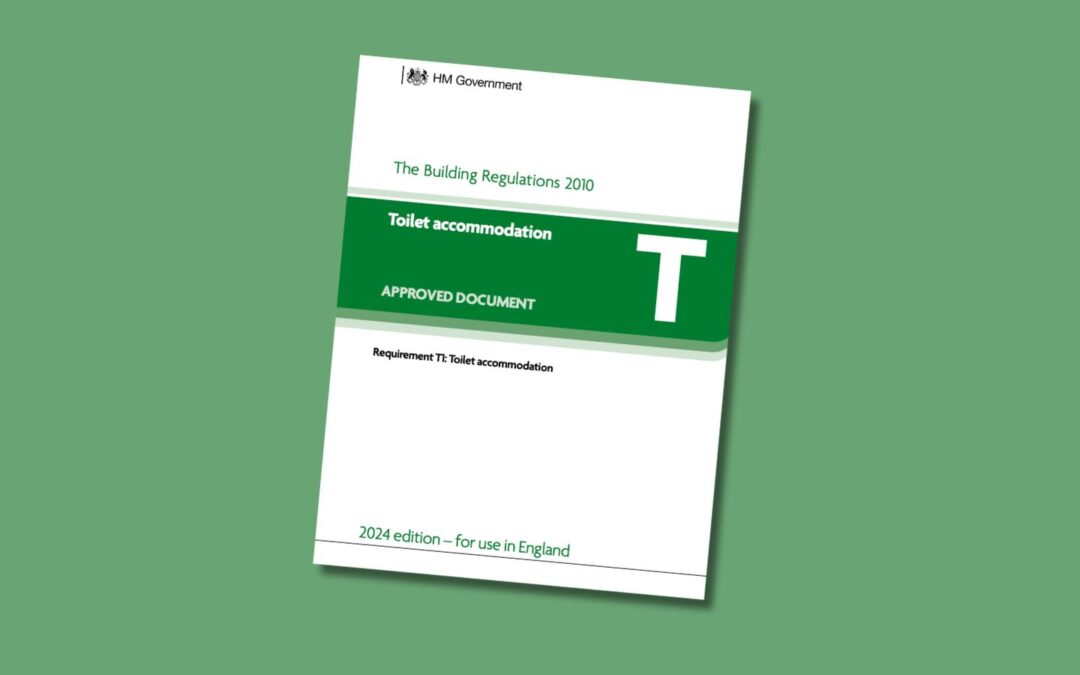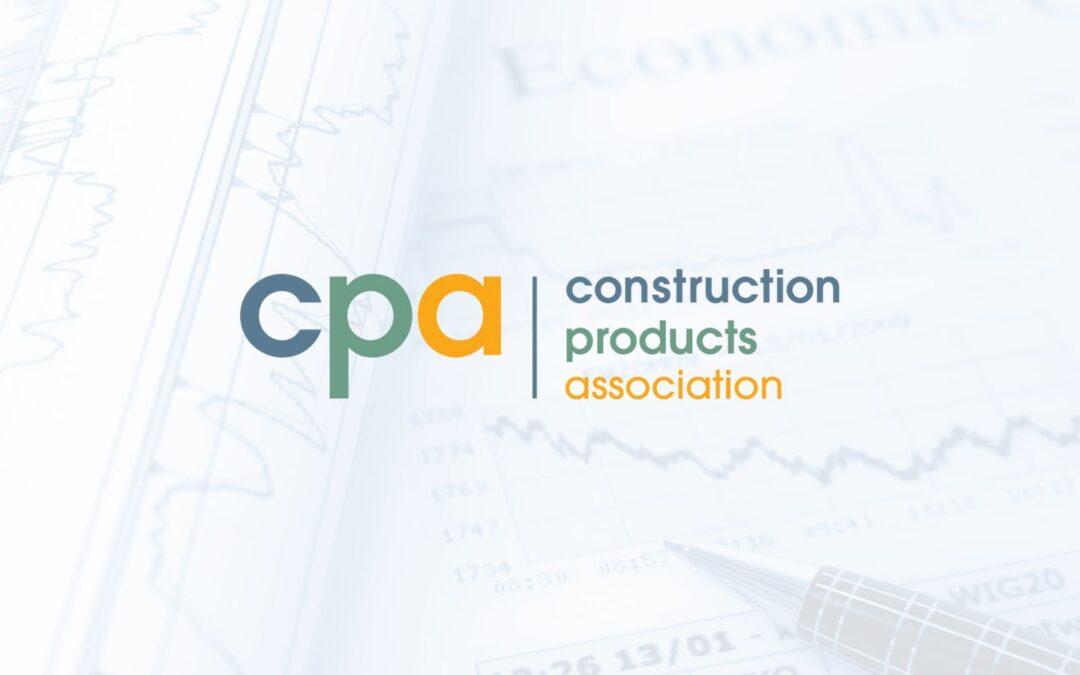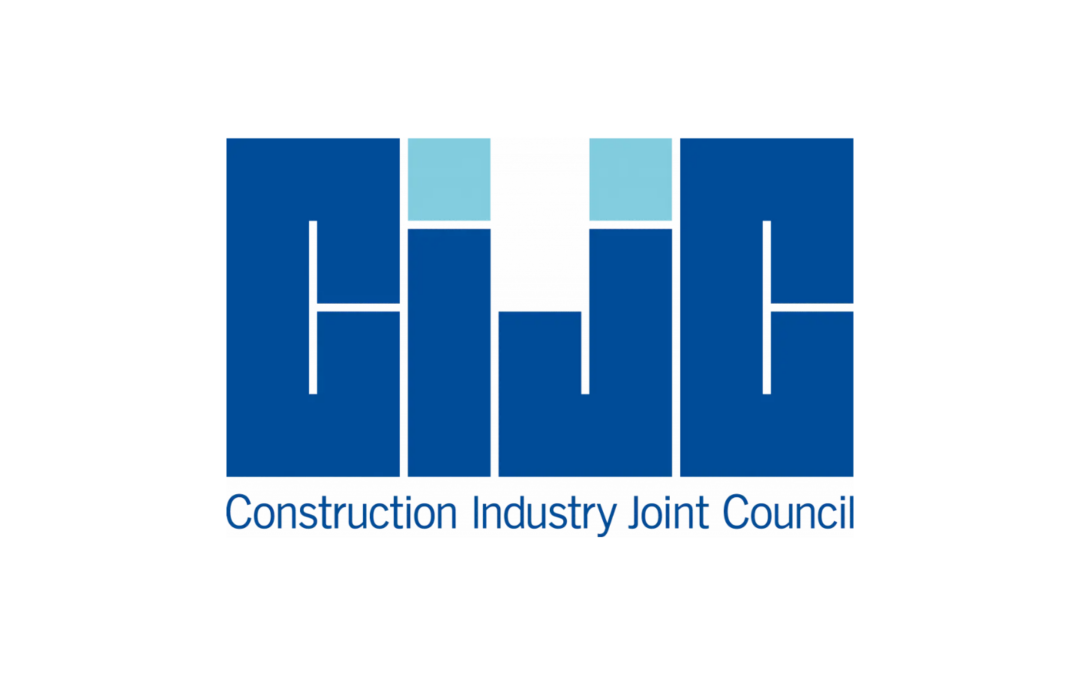
by Oscar Venus | May 24, 2024 | Contractual and Legal
A recent flurry of organisations have signed the Conflict Avoidance Pledge and FIS is proud that our members are front and centre in this. The new momentum coincides with a new Chair of the Conflict Avoidance Coalition who many members will recognise, Len Bunton, one of the FIS Contract Reviewers and a provider of contractual guidance via the FIS Helplines.
The Conflict Avoidance Process is a contractual mechanism which helps parties to avoid getting embroiled in pro-longed and damaging disputes. Where disagreements begin to develop, CAP enables parties to address and resolve matters early, collaboratively and inexpensively. CAP is included in contracts via a sample standard clause. If a dispute arises, the process involves the nomination of an impartial CAP professional (a highly experienced and knowledgeable subject matter expert). The role of the CAP professional is to inquire in the disputed issues and provide a report with recommendations on how they can be resolved. For example, an issue about interpretation of a contractual clause can be referred to a CAP Professional who is a lawyer with immense experience in building contract interpretation. If the problem that needs resolving is about the costs of variations, it can be referred to a highly experienced and impartial chartered quantity surveyor.
The CAP Professional would undertake an investigative role. They would, if appropriate, visit the relevant project site and talk to people who do the work and/or oversee delivery of the project. The CAP Professional would endeavour to get a clear understanding of the problem and apply their experience to provide a report with fully reasoned recommendations on how matters ought to be resolved.
Each party will normally bear its own costs and expenses and will bear in equal share the remuneration and expenses of the CAP Professional. Companies using CAP can promote their support by signing the Conflict Avoidance Pledge.
Conflict Avoidance Coalition chair Len Bunton thanked FIS for their support through the Coalition and added:
“I am greatly encouraged at the number of FIS members who are Signatories to the Pledge. The process is all about early intervention to ensure that issues on projects do not escalate into costly and time-consuming disputes. Wherever possible, I am working with FIS members to have this embedded into contracts, and I am 100% sure this will reduce the number of payment and cash flow issues currently surfacing”.
FIS Member and Pledge signatory John O’Connell, Managing Director of O’Connell’s Drywall stated:
“By signing the conflict avoidance pledge this demonstrates to our clients and supply chain that that we are committed to sending clear and consistent applications and expect the same in return with payments, this assists regular payments and cashflow and enables us to pay our suppliers on time. This also enables us to build strong ongoing business relationships with our supply chain and clients.By doing this providing consistency to all enables us all to have reduced stress and concentrate on our core businesses.”

by Oscar Venus | May 24, 2024 | Material Shortages
Last week European Aluminium, an association representing the European aluminium sector, issued a hard-hitting statement to the European Parliament, calling on them to address the ongoing exclusion of major aluminium product categories from its sanctions regime on Russia. This stands in stark contrast to actions taken by UK Government and other G7 international partners, including the US, and Canada, which have already imposed measures on Russian aluminium ingots.
European Aluminium stresses that a comprehensive ban should encompass all principal categories of aluminium products — including ingots, slabs, and billets. These categories collectively account for more than 85% of the EU’s aluminium imports from Russia. Adopting this comprehensive approach is crucial for aligning the EU’s actions with those of other G7 international partners. A united stance is essential to effectively isolate the Russian regime economically and halt the financing of its aggression.
“It’s getting harder and harder to justify the continued exclusion of aluminium ingots from the scope of EU sanctions on Russia,” says Paul Voss, Director General at European Aluminium. “We could live comfortably without it, and we should. This continued omission has allowed Russia to bring in revenue of more than €3.5 billion over the last two years, directly contradicting the G7’s commitment to cut Russian metal revenues. Meanwhile, our downstream producers (e.g. extruders, rollers) in the EU are increasingly at a disadvantage compared to those in other G7 regions like the US, which is already shielded from the influx of semi-finished products made from discounted Russian metal ingots. We urgently need to address this gap to ensure a level playing field and live up to our international commitments. But most importantly, we must stop funding the Russian war machine with revenues from aluminium imports.”
Since the onset of the conflict, the European aluminium industry has proactively reduced its reliance on Russian aluminium. According to EU trade data, aluminium imports of ingots from Russia decreased by 35% last year. This trend continues into early 2024. This reduction has resulted in Russia’s market share now accounting for only about 8% of the EU’s aluminium ingot imports (HS 7601), down from 25% just a few years ago. Without the EU implementing comprehensive measures on Russian ingots, the industry’s efforts to achieve complete decoupling will be hindered. The European value chain could easily substitute the relatively small percentage of Russian metal with increased EU production and imports from elsewhere.
Commenting on the statement from European Aluminium, FIS CEO Iain McIlwee stated: “European Aluminium are right to press the EU on this and I would expect, and we will be calling for UK Government to join in. The UK has rightly taken a strong stance on any imports associated with Russian material, but this is undermined if aluminium and products made from Russian aluminium are still finding their way into the UK via European sources. I am sure no UK firm would be happy to know that they are inadvertently buying and supplying products, the sale of which is supporting the war in the Ukraine.”
FIS, through our Sustainability Leadership Group has a strategic partnership with the Supply Chain Sustainability School, which offers free advice and training on Responsible Sourcing and how you can manage your risks in this supply chain – this can be accessed here

by Oscar Venus | May 23, 2024 | Membership
With the General Election called for the 4
th July,
FIS wasn’t caught on the hop – we have already set down our core manifesto
A Blueprint for Better Construction looking at how policy can support better procurement and contracting and help to improve investment in skills, innovation and net zero.
We are also calling for profound change in the education system and apprenticeship process. Currently we are failing our employers and young people and met in recent weeks with colleagues from across the sector and the current Government and Shadow Teams to discuss labour shortages and dwindling apprenticeship numbers.
FIS is urging all members to contact their local candidates (you can find their details here) and challenge them on how their party will support a sector that enables growth, delivers sustainability and provides employment for one in ten people in the UK.
We hope our document helps you to form you arguments and please feel free to copy FIS in to any communications or contact us for any support you need in this process.

by Oscar Venus | May 17, 2024 | Main News Feed
Vistry’s announcement this week raises further concerns for FIS related to procurement in the Housing Sector. In their latest update, Vistry (whose business model has pivoted to focus on the delivery of affordable homes (mostly commissioned by public sector and housing associations). Vistry stated:
“We expect half year and full year profit to be ahead of last year and remain confident in achieving a 40% ROCE and £800m operating profit in the medium term” full report here.
FIS has written to politicians on both side of the house raising the concern that improved profits are, in no small part, a result of the hard squeeze on the supply chain. Profit is being distributed to shareholders rather than invested in our industry and communities. At the same time share price has been increasing and CEO Greg Fitzgerald is getting close to his bonus (which is expected to be roughly the cost of building 1,000 homes!).
The Competitions and Markets Authority (CMA) have this year raised “fundamental concerns” about behaviours in the house building sector and have opened a separate investigation into suspected anti-competitive behaviours of 8 housebuilders (that FIS Members can feed into here).
This intervention follows earlier engagement with government (and opposition) in the third quarter of 2023 when there was a notable step up in aggressive procurement strategies across this part of the market. The fact remains that this programme of affordable and social housing, if commissioned correctly, has massive upside opportunities to help deliver a baseload for the housing industry that will support investment in the delivery ecosystem in terms of skills, jobs and modernisation. This is severely limited by the procurement tactics on show here and the concern remains that fiduciary responsibility to shareholders and driven by a bonus culture is outweighing any social opportunity from house building, This presents a huge missed opportunity for any government.
Do discuss or for further details of the correspondence (for interest or should you wish to raise with your own local MP/candidates) please email: iainmcilwee@thefis.org
If you have information that you would like to raise with the Competitions and Markets Authority, please click here.
To see FIS Campaigns and the latest copy of the FIS Manifesto: A Blueprint for Better Construction click here

by Oscar Venus | May 17, 2024 | Employment, Fairness, Inclusivity and Respect (FIR), Health and Safety
Prioritising mental health can be hard and is often forgot about, but it not only impacts your team, your business can also suffer. Your employees deserve a safe working environment and learning how to take care of your people will make a significant difference to your business’ productivity and absenteeism.
To learn more about managing mental health in your business join our Associate Service Provider Member Citation’s upcoming webinar ‘Mental health awareness- Building a healthier happier team’ taking place on Tuesday 21 May from 11-12pm.
What’s included?
- Everything you need to know about stress risk assessments
- How to engage your employees and boost productivity
- Practical tools to support wellbeing and manage stress in your business
Register now: https://tinyurl.com/jy2jw7b4
If you’d like to chat about how Citation can help with the HR and Health & Safety side of your business, just fill in their call-back form, and they’ll get right back to you. Remember to quote ‘The Finishes and Interiors Sector’ when enquiring to access preferential rates.

by Oscar Venus | May 17, 2024 | Technical
Building regulation in England to provide guidance on the design and layout of universal toilets, ambulant toilets and toilet cubicles.
The regulations set out in Part T of the Building Regulations are crucial in ensuring that toilets are accessible to all individuals, including those with disabilities. Universal toilets are designed to cater to a wide range of users, providing a comfortable and safe environment for everyone. Ambulant toilets offer additional support and space for individuals who may have difficulty using standard facilities.
When it comes to toilet cubicles, the design and specifications play a key role in creating an inclusive and welcoming space. It is essential to consider factors such as size, layout, grab bars, and accessibility features to meet the needs of all users. By following the guidelines outlined in Approved Document T, designers and architects can contribute to the creation of more inclusive and accessible facilities in new non-residential buildings and structures undergoing significant changes.
Ultimately, these efforts not only comply with regulations but also promote equality and diversity, ensuring that everyone has equal access to essential amenities. By prioritising accessibility in toilet design, we can create a more inclusive environment for all individuals.
Download the document here

by Oscar Venus | May 16, 2024 | Technical
Our technical team at FIS are continuously working to provide guidance answer questions and look out for changes in legislation that could impact your business.
The work we do is varied as you will see from the presentation, this first video update includes:
- Details of a new guide on repairing historic lath and plaster ceilings,
- Understanding how products work together and integrate with other building systems especially where Fire walls are installed with services, doors, glazed partitions, this will be launched later in the summer.
- Addressing a gap in training our teams to estimate or procure products including drylining, ceilings, infill SFS and glazed partitions.
- Developing systems to evaluate acoustic performance and specifications for offsite manufactured meeting pods
- Reducing risk in managing nominal or unresolved design details
- Detail behind the first industry alert issued this year on the suitability of Smoke shafts, one not to miss!
- Fire resistance of Glazed fire screens and the importance of insulation values
- Update of our publication reviews
- Details of our upcoming meetings and events including a free to attend meeting for drylining organisations on 30 May and the Ceilings and absorbers group on 5 June
- More information on our Advisory service and answering your technical calls
Play the video below to hear from Jim and Joe

by Oscar Venus | May 10, 2024 | Market data
The CPA’s Economic and Construction Update provides an insightful summary of the latest economic and construction trends in the UK. The update covers key indicators such as the CPI inflation and core CPI inflation, UK construction average weekly earnings, UK construction insolvencies, UK house price index, and the UK residential market survey.
The latest weekly update includes
- ONS Construction Output (March 2024)
- S&P Global UK Construction PMI (April 2024)
- ONS Construction New Orders (2024 Q1)
- RICS UK Residential Market Survey (April 2024)
The update is an excellent resource for anyone interested in the UK construction industry, and the contents page allows readers to easily navigate to the sections that are most relevant to their interests.
In addition to this update, the CPA also publishes Construction Forecasts twice a year. Members can download both the pdf and excel versions of the forecast from the FIS website here.

by Oscar Venus | May 9, 2024 | CSCS
In accordance with the latest CLC recommendation regarding Industry Card Schemes, it is now mandatory for all cards bearing the CSCS logo for skilled occupations to be obtained through qualification. As of 30 June, Industry Accreditation cards will no longer be renewed, and all existing cards will expire on 31 December. The number of individuals holding Industry Accreditation cards has decreased to 25,000 from over 60,000, and CSCS has provided guidance on replacing Blue, Gold, or Black Industry Accreditation cards issued by the core scheme.
Companies need to determine the appropriate path for each worker to transition to the relevant card based on their occupation and qualifications. For workers requiring qualifications, plans should be put in place promptly. Currently, there are enhanced CITB grant rates for attaining specific S/NVQs when replacing Industry Accreditation cards. CSCS does not issue cards for non-construction roles, and individuals who do not regularly visit the site may not need a card.

by Oscar Venus | May 9, 2024 | Main News Feed
FIS is proud to support Mental Health Awareness Week. We recognise the importance of mental well-being in the construction industry and strive to provide ongoing support for all FIS members.
As part of our commitment to this cause, we are actively participating in Mental Health Awareness Week 2024, themed “Movement: Moving more for our mental health”. This initiative aims to encourage individuals to prioritise physical activity as a means to improve their mental health.
At FIS, we believe that fostering a supportive and understanding environment is crucial in promoting mental wellness among our members. We offer a range of resources and support systems to ensure that everyone has access to the help they need.
Through these efforts, we hope to create a culture where mental health is valued and prioritized, not just for one week, but every day of the year.

by Oscar Venus | May 9, 2024 | Building Safety Act
This latest guidance from the Building Safety Regulator provides more information on expectations for managing the scenario where the Building Safety Regulator (BSR) has approved your building control approval application. It focuses on how you:
- make a change control application for major changes to the proposed work
- tell BSR about notifiable changes
This guidance applies to higher risk buildings, but should also be considered useful guidance for managing changes to all regulated construction works.
It recommends that for each change, a brief description of the change and why you consider it to be a major or notifiable change is included in the information pack.
It is vital to advice the BSR:
- why you are making the change, for example, change of design approach or availability of materials
- all the advice you sought, even if it disagrees with your proposal
- who gave the advice, their occupation and contact details
- which documents the change affects
You can read the full guidance note on the Government website here.

by Oscar Venus | Apr 10, 2024 | Skills
Do you have a passion for inspiring and guiding young minds towards a brighter future? Then becoming a part of the Go Construct STEM Ambassador programme could be the perfect opportunity for you!
By participating in their webinar, you’ll gain insight into the work that Ambassadors are already doing, and how you can contribute to this inspiring initiative. You’ll also be introduced to STEM Learning, and have the chance to ask any questions you may have.
On top of that, you’ll receive a step-by-step guide on how to register as a Go Construct STEM Ambassador, and a live sign-up will also be available during the webinar.
Contact Marie Flinter at marieflinter@thefis.org for the link to your preferred session. There are webinars running on:
Thursday 18 April – 10am/11am
Tuesday 21 May – 10am/11am
Don’t miss the chance to make a difference in the Finishes and Interiors Sector

by Oscar Venus | Mar 22, 2024 | Employment, Skills
FIS CEO, Iain McIlwee was a guest at the Government’s Business Connect Conference this week where The Prime Minister announced a reform package to support small businesses.
Key announcements include:
- From 1 April, the Government will fully fund apprenticeships in small businesses by paying the full cost of training for anyone up to the age of 21.
- The amount of Apprenticeship Levy funds that employers can transfer to other businesses will be increased from 25% to 50%.
- The Government will increase the thresholds which determine whether a company qualifies as a small or medium‐sized company by 50% and remove a number of reporting requirements.
- New taskforce to be established to boost private investment in women-led businesses and make the UK the best place in the world to be a female founder.
Prime Minister Rishi Sunak said:
“Whether it’s breaking down barriers and red tape for small businesses, helping businesses hire more young people into apprenticeships and skilled jobs or empowering women to start up their own businesses – this government is sticking to the plan and leaving no stone unturned to make the UK the best place to do business. Taken together, these measures will unlock a tidal wave of opportunity and make a real difference to businesses and entrepreneurs across the country.”
Education Secretary, Gillian Keegan said:
“This Government has built a world-leading apprenticeship system from the ground-up – with apprenticeships now available in around 70 per cent of all occupations. Apprenticeships are a fantastic way for businesses to develop the skills they need, and these new measures will help more businesses and young people benefit from them. Our plan to deliver a high-growth, high-skilled economy is working, with more opportunities available to young people than ever before.”
Secretary of State for Business and Trade Kemi Badenoch said:
“Almost every job in the UK is owed to what is, or what previously was, an SME. They are the engines of economic growth for this country.. Whether it’s through cutting red tape, unlocking investment or lowering business costs, today’s announcements show that this government is committed to doing all it can to turbo-charge SMEs so that they can go further and faster than ever before.”
FIS CEO, Iain McIlwee responded:
“There were some positives to take away from Monday, but I am not convinced that the new apprenticeship fund is a game changer. It does, however, simplify the funding mechanism for apprenticeships – that is a good thing. The focus on women in business is important, but the discussion on finance was sadly quite remote for construction and I am not convinced will bring us anything tangible.
My underlying concern is that we are in election season now, we are getting sweeties and headline grabbing policies when we need vision and a clear plan. We have a failing housing strategy, we have dwindling numbers of trade apprenticeships and finance for construction is in short supply.
Construction is a key enabler and fundamental driver for economic growth. This was a good opportunity to raise questions and encouraging attempt by Government to engage with business discuss SME support, but came up a bit short for me. We need a clear long-term economic strategy that we can buy into and plan around. We also desperately need procurement reform to support SMEs in construction and free up investment”.
FIS CEO Iain McIlwee’s comments at the conference were covered in this Financial Times Article
See the FIS Manifesto for Construction Here

by Oscar Venus | Mar 21, 2024 | Market data
Monthly Construction Update for January
- Construction output is projected to have declined by 0.9% in the three months leading up to January 2024, primarily due to a drop in new work by 4.5%, while repair and maintenance saw an increase of 4.0%.
- The decline in the three-month period was driven by reductions in infrastructure new work and private housing new work, which decreased by 9.3% and 5.2% respectively. Conversely, non-housing repair and maintenance, and private housing repair and maintenance saw positive growth of 3.2% and 3.3%.
- January 2024 witnessed a 1.1% rise in monthly construction output in volume terms, following three consecutive monthly declines, with a recorded value of £15,422 million for January 2024.
- The monthly output increase stemmed from growth in both new work (1.1%) and repair and maintenance (1.2%).
- Across sectors, six out of nine sectors experienced an upturn in January 2024. The primary contributors to this monthly rise were private new housing and non-housing repair and maintenance, showing increases of 2.6% and 1.9% respectively.
Read the full report here.
Download the ONS Construction update here.

by Oscar Venus | Mar 21, 2024 | Market data, Material Shortages
Delivered as part of the Government’s Transforming Construction programme, the Product Platform Rulebook is a shining example of what can be achieved when government and industry come together to drive change. The Rulebook remains one of the Construction Innovation Hub’s most influential outputs and forms a key enabler for the Infrastructure and Projects Authority’s (IPA) Transforming Infrastructure Performance (TIP) agenda. Given such potential, it is critical that government and industry find ways to continue this impact now that the Hub’s initial funded period has now concluded.
In this spirit, we are delighted to announce that the Construction Leadership Council will be taking over the reins of the Product Platform Rulebook in 2024 thanks to our new Industrialised Construction workstream. This work will see the Rulebook revised and re-released in the form of a new ‘Platform Playbook’, setting out a clear path to the adoption of platform approaches for social infrastructure delivery. The group is chaired by Ron Lang, former Chief Technical Officer of the Hub and now Regional Director at AtkinsRéalis.
“The Product Platform Rulebook and the concepts it contains present a logical path to a more industrialised, more productive construction sector. But this work is far from complete, and we continue to learn through our collective experiences of applying these concepts in practice. I am delighted to have the opportunity to lead the next step in its development through the CLC and thank my industry peers for continuing to commit their time and expertise for the collective benefit of our sector.”
The decision to pass the Rulebook over to the CLC for update has been warmly welcomed by leading figures within the former Construction Innovation Hub. The Hub’s Programme Director, Keith Waller, believes the Rulebook still has a powerful role to play going forwards:
“Yet another of the Hub’s output has found a new home to drive forward its legacy. Given that our analysis identified that the adoption of platform approaches in construction could unlock long term productivity gains of up to £7.8bn per annum, I am delighted the CLC will now be using its convening power to ensure these benefits can be achieved.”
Steven Yeomans, former Hub programme lead and now Chief Engineer for Construction at the Manufacturing Technology Centre believes the planned update shows what can be achieved through continuing collaboration:
“As the former lead partner of the Hub, we’ll continue to support this ongoing, transformative work through our participation in the CLC’s Industrialised Construction workstream. In doing so, we can enable the construction sector to address performance and productivity challenges.”
The new Platform playbook is expected to be published for comment in November with a series of supporting activities being planned for 2024. For more information, please contact ron.lang@atkinsrealis.com

by Oscar Venus | Mar 21, 2024 | Employment
The Construction Industry Joint Council (CIJC) has released an updated Promulgation Notice to account for the rises in the National Minimum Wage and National Living Wage starting from April 1st. The General Operative rate will be raised to £11.44 per hour, and the Apprentice rate for 19 to 20-year-olds will be increased to £8.60 per hour.

by Oscar Venus | Mar 21, 2024 | Building Safety Act, Health and Safety
HSE Director of Building Safety, Philip White, has officially announced in a public letter to the industry an extension to the deadline for experienced Building Inspectors in England to finish their competence assessment. Qualified Building Inspectors must meet the following criteria and will now have until July 6 to complete their assessment:
- Current Building Inspectors
- Register as a Class 1 Registered Building Inspector (RBI) by April 6
- Undergoing competency assessment by an approved scheme by April 6
- Not informed by an approved scheme of failing the competency assessment twice
Building Inspectors meeting these conditions can continue their building control duties for the RBI class they are assessed for until July 6, by which they must upgrade their registration to Class 2, 3, or 4. The transitional arrangements are now part of the Code of Conduct for RBIs, and as of March 14, 3,261 Building Inspectors had applied for registration.
The Welsh Government has stated that Building Inspectors in Wales must register by April 6 and now have until September 30 to complete their registration.

by Oscar Venus | Mar 15, 2024 | Skills
Attention FIS Members in Greater Manchester,
Are you interested in NVQ L2 training for your employees or LOSC? DMR, an FIS Approved Training Provider, offers fully funded courses.
- Candidates must be over 19 years old with 2 to 3 years of experience in the relevant trade for the NVQ they choose.
- Candidates must have a Greater Manchester residential postcode.
This qualification will help your employees obtain their Blue Skilled Worker CSCS Card. Keep in mind that grandfather rights will end by the close of 2024.
The Construction Leadership Council is implementing Industry Accreditation changes by 31 December 2024 to ensure a competent and correctly carded workforce.

by Oscar Venus | Mar 15, 2024 | Fairness, Inclusivity and Respect (FIR), Skills
The ‘Fit-Out Futures’ group is a new network being launched by FIS to encourage and empower change by capturing and enhancing the thoughts, ideas and energy of the rising stars and those from diverse backgrounds within the sector. The Group will operate as a dynamic network that connects those from diverse backgrounds and younger people working in the community to share experience and add their insight into the work of FIS.
The group will be a platform for action; looking to harness ideas to help us evolve and ensure that we project a sector that is modern, responsive, inclusive and attractive to work in. Ultimately the programme will be determined by the group, but initially FIS Team will organise a number of meetings and events (physical and online) throughout the year. Anyone wishing to join the Fit-Out Futures group should contact Michelle Armstrong
How the network will work:
How will we get things going
To kick things off we will host an initial round table meeting, drawing together key individuals from across the supply chain. The aim of this meeting will be to introduce the concept of the Working Group and give those joining an opportunity to raise your ideas for shaping the future with like-minded people intent on making a difference.
Group Objectives:
- Create a network that connect those from diverse backgrounds and help individuals improve their networks
- To help promote and amplify positive initiatives and get the weight of FIS behind them
- Ensure all voices in our community are heard and FIS activity reflects their needs
- To be custodians of the FIS Respect Policy and ensure FIS events are designed to support all in the community
- Tap into new perspectives to confront challenges and drive change
- Harness ideas to support sector recruitment, school and college engagement etc

by Oscar Venus | Mar 15, 2024 | Contractual and Legal
Director of Building Safety for HSE, Philip White, has today written to the Building Control industry outlining new transitional arrangements for the registration of building control inspectors in England.
The Building Safety Regulator has listened to the concerns raised by the profession, including the potential impact on the construction industry if there are not enough inspectors registered to practice by the legal deadline.
It is crucial these concerns are balanced with the requirement for BSR to implement the Building Safety Act, 2022 and the need to raise standards in the profession; it is also important to remember that these changes were introduced in the wake of the Grenfell Tower tragedy.
A competence assessment extension period of 13 weeks will be introduced from 6 April to 6 July 2024 to enable those who meet specific criteria to continue to operate. This is not an opportunity to delay completing registration as an RBI and there will be no extension to these arrangements.
BSR has seen a positive response to the changes among the profession and it is encouraging to see a large number of people already engaging with the process. As of today (14 March) 3,261 professionals have started their applications to register.
In line with BSR’s enforcement policy statement and the principles of proportionate regulation, BSR will target its regulatory activity at those who present the greatest risk, particularly those who are not engaging with the new regulatory regime.
Open letter to Building Control professionals – March 24
Letter from the Director of Building Safety to industry:
Dear colleague,
As you will be aware, a number of concerns have been expressed by the building control profession about whether enough building control professionals will be registered as RBIs by 6 April.
I understand those concerns and have been working with colleagues in BSR and across government to consider what we can do to support the profession. To that end, the decision has been taken to implement a competence assessment extension period for those meeting set criteria.
Professionals who are not registered by 6 April will not benefit from the extension period and will not be able to continue to work on regulated building control activities.
Experienced building control professionals who are not trainees but have not yet completed a competence assessment will have the scope of their registration temporarily extended provided they meet the following criteria:
Temporary Class 1 Registration Extension Criteria:
- They are an existing building control professional;
- They are registered as a Class 1 RBI by 6 April 2024;
- They are enrolled in, and in the process of having their competency assessed through, one of the BSR approved competency assessment schemes by 6 April 2024. These are: cbuilde.com, www.thebscf.org, www.ttd-education.org; and
- A scheme provider has not told them that they have not passed their competency assessment for a second time
Those who meet the above criteria will be allowed a period of 13 weeks from 6 April 2024 to 6 July 2024 to complete their competency assessment and upgrade their registration to Class 2 or 3 (and 4, if applicable).
During this period, the scope of their registration will be temporarily extended, and they can continue to undertake building control work for the class of RBI for which they are undertaking a competency assessment.
Those who meet the criteria but do not successfully complete a competency assessment and upgrade their registration class by 6 July will not be able to continue to undertake regulated building control activities.
More detail on the transitional arrangements can be found here: https://www.hse.gov.uk/building-safety/building-control/codes-standards.htm
This must not be seen as an opportunity to delay – there will be no extension to these arrangements. From 6 July 2024 any professionals who have not completed a competency assessment and upgraded their registration class will only be able to undertake work under supervision.
We expect employers to support staff going through the assessment process by ensuring they have time to complete the assessment process and providing assistance and support to help them to succeed.
I encourage everyone who has not yet done so to register with BSR and enrol with one of the competency assessment schemes as soon as possible.
Philip White
Director of Building Safety, HSE
Page 2 of 9«12345...>Last




















